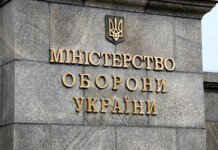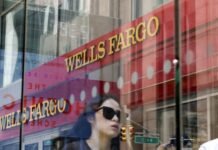
Tokenization is reshaping the real estate industry by transforming physical property into digital tokens on a blockchain, offering fractional ownership, improved liquidity, and borderless investment opportunities. However, as with any financial innovation, tokenized real estate is only as viable as the regulatory framework that supports it. Different jurisdictions are approaching the regulation of real estate tokenization in varying ways, with legal clarity, licensing requirements, and investor protections at the forefront of each strategy. For more expert insights on tokenized real estate, visit the Tokenizer.Estate blog — a trusted resource for blockchain property innovation.
This article explores and compares the current regulatory landscape for real estate tokenization in key global hubs — including the United States, European Union, Switzerland, Singapore, and other noteworthy markets — providing a high-level but practical analysis for real estate professionals, fintech innovators, legal advisors, and blockchain entrepreneurs. The article Real Estate Tokenization Regulation: A Country-by-Country Guide provides a detailed overview of how different jurisdictions are approaching this emerging asset class.
United States: Regulation Through Securities Law
In the U.S., the regulatory approach to real estate tokenization is largely governed by existing securities laws, making the Securities and Exchange Commission (SEC) the key authority. Real estate tokens, particularly those offering fractional ownership or revenue-sharing, are generally classified as securities under the Howey Test.
Legal Framework:
- Tokens representing shares in real estate or income streams are treated as securities.
- Issuers must register offerings with the SEC or qualify for an exemption, such as Regulation D, Regulation A+, or Regulation S for offshore offerings.
Licensing & Compliance:
- Platforms facilitating token sales must register as broker-dealers or partner with a licensed entity.
- Secondary market trading requires registration with FINRA or operation through Alternative Trading Systems (ATS).
Market Readiness:
- The U.S. has a robust fintech ecosystem, but legal ambiguity around digital assets creates friction.
- Institutional adoption is cautious but growing, with pilot projects testing regulatory waters.
Key Insight: The U.S. leads in enforcement and legal precedent but lags in regulatory flexibility, making compliance-heavy tokenization feasible only for well-capitalized ventures.
European Union: Unified Yet Fragmented
The EU is moving toward a harmonized approach with the implementation of the Markets in Crypto-Assets (MiCA) Regulation, expected to become fully applicable by 2025. However, member states still interpret tokenization within the bounds of national law.
Legal Framework:
- Real estate tokens often qualify as financial instruments under MiFID II.
- MiCA will standardize the licensing of crypto-asset service providers (CASPs), including those dealing in asset-referenced tokens.
Licensing & Compliance:
- Issuers must conduct KYC/AML checks and may need a prospectus depending on the size and nature of the offering.
- Custodians and exchanges must be licensed under local financial authorities (e.g., BaFin in Germany, AMF in France).
Market Readiness:
- Tokenization pilots are active in Germany, France, and the Netherlands.
- Public-private initiatives, like the EU Blockchain Services Infrastructure (EBSI), support regulatory innovation.
Key Insight: The EU is building a more cohesive regulatory structure, but compliance can vary significantly between countries until MiCA is fully operational.
Switzerland: Legal Clarity and Crypto Leadership
Switzerland stands out for its progressive and well-defined legal framework regarding tokenized assets. The Swiss Distributed Ledger Technology (DLT) Act, enacted in 2021, offers one of the most comprehensive legal bases for asset tokenization, including real estate.
Legal Framework:
- Tokenized real estate is considered a book-entry security under the Swiss Code of Obligations.
- FINMA classifies tokens as asset, utility, or payment tokens and applies existing financial laws accordingly.
Licensing & Compliance:
- Issuers and exchanges must comply with AML regulations and may need licenses as financial intermediaries.
- No separate digital asset license is needed for certain activities, reducing barriers to entry.
Market Readiness:
- Swiss institutions like Sygnum and SEBA Bank actively support tokenized real estate projects.
- Canton-level innovation hubs (e.g., Zug’s Crypto Valley) foster experimentation.
Key Insight: Switzerland provides legal clarity, regulatory efficiency, and institutional support, making it a global leader in tokenized real estate deployment.
Singapore: A Sandbox for Smart Regulation
Singapore has positioned itself as a global fintech and blockchain hub with an agile regulatory framework and strong institutional support. The Monetary Authority of Singapore (MAS) uses a principle-based approach, supporting innovation through its fintech sandbox.
Legal Framework:
- Tokenized real estate is subject to the Securities and Futures Act (SFA) if deemed a capital market product.
- MAS evaluates offerings case-by-case based on substance over form.
Licensing & Compliance:
- Issuers must hold a Capital Markets Services (CMS) license if tokens qualify as securities.
- Exchanges and custodians are regulated under the Payment Services Act and Digital Token Offerings guidelines.
Market Readiness:
- MAS collaborates with private firms on tokenization pilots, such as Project Guardian and Project Orchid.
- High digital literacy and investor interest support growth.
Key Insight: Singapore’s proactive, flexible regulation and sandbox model encourage innovation without sacrificing investor protection.
Other Notable Jurisdictions
United Arab Emirates (UAE):
- Dubai and Abu Dhabi have introduced specific crypto regulations under DIFC and ADGM.
- Free zones offer streamlined licensing for digital asset platforms, including tokenized real estate.
United Kingdom:
- The FCA oversees security tokens under existing financial regulations.
- Regulatory clarity is improving, but the UK still lacks a comprehensive digital asset law.
Hong Kong:
- Recently reopened to crypto firms with new licensing regimes for virtual asset service providers (VASPs).
- Real estate tokenization remains in early stages but has growing institutional interest.
Conclusion: Navigating a Patchwork of Progress
While the promise of real estate tokenization is global, the regulatory map is anything but uniform. Jurisdictions like Switzerland and Singapore offer clear and supportive environments, while the U.S. and EU provide scale but with heavier compliance burdens. The choice of where to launch a tokenized real estate project depends on a blend of legal clarity, infrastructure, investor base, and regulatory agility.
For stakeholders across real estate, fintech, and blockchain, understanding the evolving compliance landscape is crucial not just for avoiding pitfalls but for unlocking the transformative potential of tokenized real estate worldwide. As international cooperation and standards improve, we can expect the path to tokenization to become clearer, safer, and more scalable — a necessary foundation for the next era of property investment.

































